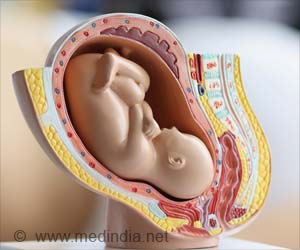Post traumatic stress disorder (PTSD) is due to various traumatic events and researchers have formulated a pill that could erase or reduce the pain.
Post traumatic stress disorder (PTSD) is experienced by people who had undergone various traumatic events like tsunami, hurricanes, rape etc.
People suffer from recurrences of these bad memories which are intense and painful and eventually cause a lot of disturbance in one’s life. Hence researchers have come up with a pill that could erase all the bad memories or atleast reduce the pain.Psychiatrist Hilary Klein has witnessed a lot of cases who later go on to develop PTSD. This problem was first seen in Vietnam War veterans. But the good news is that only 24% of the victims suffer from PTSD.
The main symptoms are physical symptoms, memories, flashbacks etc. The scientific explanation that can be given to this PTSD is that the brain does not function properly after the traumatic event which results in the excess stress hormone causing to store these memories in a alternate mode rather than the normal ones.
Drugs to prevent the excess production of stress hormones can prevent the storage of these memories. Some doctors deliberately trigger the old memories and give medications to suppress them in order to treat the PTSD. The initial study was conducted on 19 individuals but there is a necessity to increase the sample size.
The government spends $4 billion a year to treat this kind of illness experienced by the American troops returning from Iraq and Afghanistan.
James McGaugh, director of the Center for the Neurobiology of Learning and Memory at the University of California at Irvine and his colleague, Larry Cahill, studied how memory formation occurs.
Advertisements
Dr. Roger Pitman, a Harvard University psychiatrist, conducted a small study with 10 participants and gave them this drug or placebo and analyzed the effect. He found that after three weeks when the patients were asked to listen to their traumatic events those who had the drug showed fewer stress symptoms.
Advertisements
Such memories don’t decay and researchers are asking the patients to explain about their experience and then administer the drug, Propranolol to prevent storage of these events in the blunt memory.
But this treatment also has a lot of disadvantages like it cannot be given to soldiers and rape assault victims. In case of soldiers this cannot be administered as it would curb survival instincts. Hence they can be given when they are behind the lines or when returning home. In case of rape victims they would not be able to testify against their attackers.
But Pitman tells that this drug does not erase the memory or create amnesia. The important thing to know about this drug is it doesn't put a hole in their memory. It doesn't create amnesia. Propranolol should be given within a day or two of trauma to prevent PTSD.
Klein, the Saint Louis University psychiatrist, appreciates the drug’s usefulness but is still skeptical about the benefits of the drug. But further studies are needed to completely solve the problems faced by the PTSD patients.











